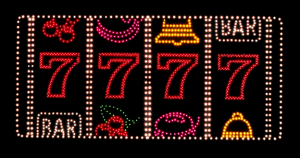Can a Contractor Do Electrical Work?
Can a contractor do electrical work, even though there are a number of tasks they can do? Keep reading to learn more about their roles and responsibilities.
Many people have been asking, Can a contractor do electrical work? Yes, but depends on the type of contractor.
Firstly, you have to understand that a contractor is different from a general contractor.
A general contractor is responsible for supervising the whole project.
Although they both work together, the contractor does the work that a general contractor can’t do.
The general contractor outsources a specific job, like electrical work, to a subcontractor.
For instance, an electrical company can work with a general contractor to manage all the electrical work on a project.
An electrical contractor can be either an individual or a company that has a contract to provide electrical work services for an agreed-upon amount, time, and scope of work.
A subcontractor has the freedom to work with different general contractors, as the job is based on a contract.
In this article, we’ll also help you understand all about contractors and electrical work.
Types of Contractors
Contractors are categorized based on their area of expertise:
- General Contractors: Responsible for supervising the whole project, general contractors control different aspects, including hiring subcontractors, getting materials, and making sure the project is completed. They have wide knowledge, but they usually don’t do electrical work.
- Specialized Contractors: They focus on a specific trade, like electrical, plumbing, or roofing. Electrical contractors handle the installation, repair, and maintenance of electrical systems.
These differences will help you know who to contract for electrical work in projects.
Electrical Risks and Safety Concerns
There are basic risks and safety concerns associated with electrical work, which must be carefully managed.
These risks are electric shock, fire hazards, and other possible injuries.
To effectively manage these risks, you must have a thorough understanding of electrical systems and safety protocols.
This is why it’s important to hire a qualified person for the job.
When someone who’s unqualified or improperly trained handles electrical work, they definitely won’t do a proper job.
Professional electricians are trained to follow strict safety standards and codes to reduce risks.
They can easily detect and mitigate potential hazards that an untrained eye may miss.
The risks and safety concerns show why general contractors would rather hire a specialized electrical contractor to do the major electrical work in a project.
The Scope of Work for Electrical Contractors

Electrical contractors do different tasks related to electrical systems.
General contractors are not qualified to do these specialized tasks, except when they’re licensed as electricians.
Electrical contractors handle the installation, maintenance, and repair of both high and low-voltage electrical systems.
They mostly secure jobs in the construction of new buildings or the renovation of existing ones.
They work closely with architects and engineers to ensure that the electrical system is designed properly and meets all applicable codes and standards.
Once the system is designed, the electrical contractor will oversee the installation process.
Also, electrical contractors can do maintenance and repair services for existing buildings.
Electrical contractors usually know what to inspect in a building’s electrical system, so it’s up to code and functioning properly.
Examples of Electrical Contract Projects
Along with design, installation, maintenance, and repair, electrical contractors work on various complex and delicate projects that a person without the necessary qualifications cannot handle.
Here are some examples of projects that electrical contractors might work on installing:
- IT systems
- Security systems
- Nurse call systems
- Lighting & speaker systems
- Alarm piping
- PAS/personal alarm systems
- Renewable energy (solar, wind, turbines)
- STEM battery systems
Why Compliance and Regulations Are Necessary
Complying with building codes and regulations is vital in electrical work:
- Building Codes: Electrical installations must comply with local building codes, which set standards for safety and efficiency. Professional electricians are familiar with these codes and ensure compliance with them.
- Regular Inspections: Electrical systems in commercial buildings often require regular inspections to maintain safety standards and ensure compliance with relevant codes.
Compliance with regulations not only ensures safety but also avoids legal complications and fines.
What Makes an Electrical Contractor Different From an Electrician
Electrical contractors usually have a team of electricians that they work with regularly.
Electricians are professionals who actually perform the installation, maintenance, and repair of electrical systems.
Electrical contractors specialize in larger projects, handling everything from estimating to project management and administration.
You don’t need their services for a simple home repair.
But if you want to design a new city office building or renovate a commercial space, an electrical contractor can be a valuable partner.
Why You Should Hire a Professional Electrician

Deciding whether to hire a professional electrician or try to handle electrical work yourself is a big deal.
On one hand, bringing in a licensed electrician gives you safety, expertise, and peace of mind.
They are familiar with safety codes, possess the right tools, and can handle complex electrical jobs correctly.
Doing the electrical work yourself is very risky. Mistakes can lead to poor installation, serious hazards, or even legal trouble if the work doesn’t meet code.
In the long run, the safest and best choice is usually hiring a professional who knows exactly what they’re doing.
When to Hire an Electrician vs an Electrical Contractor
Electricians handle electrical tasks and projects like:
- Electrical panels
- Wiring
- Repairs
- Installation
- Maintenance
- Household appliances
- Circuit breakers
- Outlets
- Switches
- Outdoor lighting
- Inspections
On the other hand, you might need an electrical contractor for more specialized jobs, like planning the wiring and electrical systems in a brand-new building.
They’re trained to do electrical work themselves, but they can also bring in other electricians to help.
So, if you’re thinking about remodeling your home or adding a new room, an electrical contractor has the right skills and knowledge to handle it properly.
They can:
- Control the possibility and constructability of designs
- Deliver a computer design plan with a higher level of detail
- Ensure the safety of the systems they work on
- Manage the project budget to help keep it on target
- Schedule the work and begin construction
- Provide support during the initial design phase
Conclusion
Can a contractor do electrical work? At the end of the day, a contractor’s role in electrical work is limited by strict rules, safety standards, and legal requirements.
While general contractors handle many aspects of a project, electrical work is a distinct area.
They require the expertise and skills of a licensed electrician.
The risks of poor wiring, code violations, and even safety hazards are too serious to ignore.
That’s why it’s always best to rely on a professional electrician who can do the job safely, correctly, and up to code.













